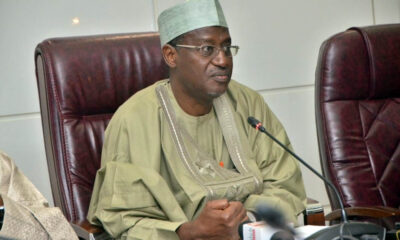Politics
Nigerian Communication Experts Give Verdict on 2023 Presidential Elections

COMMUNIQUÉ
Renowned Nigerian communication teachers and practitioners under the aegis of the Consortium of Nigerian Communication Experts (CoNCE), having critically and objectively analyzed the recent presidential election campaigns and the results of the voting have concluded that although there were some positive outcomes, many things went wrong.
Among the things that were adjudged to have gone wrong in the lead up to the election were:
- Divisive, unethical, and unprofessional communication campaign strategies, tactics, and messages that created unnecessary tension.
- Overemphasis on religion and ethnicity and the exploitation of personal and group identify in appealing to supporters.
- The unnecessary denigration of individual presidential candidates, their character, and personality.
- Overpromising on the preparedness of the electoral institutions, especially INEC, which had assured the government and people of its absolute preparedness for successful conduct of free and fair elections.
- The negative influence of money in buying votes and bribing electoral officers.
- The unexpected decision of the Central Bank of Nigeria (CBN) to introduce new Naira notes within a very short time.
- The use of politicians instead of trained professional communicators as spokespersons for some of the political parties.
- And many others.
READ ALSO:
- US interest rates could go higher than expected
- Iran announces arrests over schoolgirl poisonings
- Businesses reject old notes, await CBN, FG’s confirmation
- Serving Minister cannot be listed in private legal team – Keyamo explains exclusion from Tinubu’s
Relating to the conduct of voting, the transmission, and the eventual announcement of the final results, the participants observed as follows:
- INEC failed to live up to the voters’ expectations because of the delays in the delivery of voting materials in some centres.
- Compared to previous Nigerian elections, the conduct of this election was generally peaceful in spite of some flashpoints of violence, voter intimidation, and under-age voting.
- The much-publicized benefits of the new technologies of BVAS and iRev were not realized due to man-made errors that could have been avoided.
- Although the parties produced well-thought-out and colorfully designed manifestos, they did not find much use for these in the actual media campaigns because of their penchant for non-issues and innuendos rather than specific programs.
- In spite of the failures, there were free and fair voting and accurate reporting of results in many centres.
- The final results, as announced by INEC, showed that the major political parties performed along the same old traditional cleavages of religion, region, and ethnicity, even with the emergence of a third party that seemed to appeal more to the youths
Recommendations:
The participants recommend that:
- The political parties should appoint spokespersons who are experienced communication professionals, and as much as possible, should use only duly registered Nigerian advertising and public relations agencies.
- INEC’s communication must improve its capacity to provide adequate public enlightenment and education on voting procedures to avoid such calamitous failures in future elections.
- INEC and the other information and communication organs of government, especially the National Orientation Agency (NOA) must collaborate closely and be guided by the public interest.
- The regulation of election campaign advertising must be sustained and the Advertising Regulatory Council of Nigeria (ARCON), as both a government agency and a body created to propagate the ethical conduct of advertising, should be fully empowered to discharge its functions.
- Greater use of communication professionals in all aspects of election campaigns is necessary for the attainment of desirable communication results in elections and subsequently in governance.
The 13 Speakers:
This assessment workshop was the fifth in the series of communication engagements that were designed to examine the various uses of communication in the 2023 election cycle. This virtual event, which was held on Saturday March 4, attracted 145 discussants from diverse communication sectors. The 13 speakers represented the following organizations:
- Tolulope Olorundero, NIPR and Nigerian Women in PR
- Professor Abdullahi Bashir, President, African Council for Communication Education (ACCE).
- Bunmi Oke, Past-President, Association of Advertising Agencies in Nigeria (AAAN).
- Margaret Olele, CEO/General Secretary, Nigerian American Business Council.
- Professor Lai Oso, Ex-President, Association of Communication Scholars and Practitioners of Nigeria (ACSPN).
- Chido Nwakanma, President, International Association of Business Communicators (IABC).
- Emmanuel Ajufo, President, Outdoor Advertising Association of Nigerian (OAAN).
- Comrade Isiguzo, President, Nigerian Union of Journalists and African Journalists Association.
- Adewale Adeniyi, Vice President, Nigerian Institute of Public Relations.
- Lekan Fadolapo, Director General, Advertising Regulatory Council of Nigeria (ARCON).
- Everest Amaefule, Business Editor, The Punch.
- Professor Samaila Mande, President, Brands Academy Nigeria.
- Dr Ikechukwu Neliakuchukwu, Chairman, Rightangle PR, Abuja
Among the 145 Discussants were:
- Jahman Anikulapo, veteran Journalist and Executive Director, Culture Advocates Caucus, Lagos
- Bimbo Oloyede, veteran Nigerian TV journalist and producer
- Biodun Adefila, Chief Operating Officer – SO & U Advertising
- Oise Ihonde, Director of Sales at MODEC, Houston, Texas, United States
- George Chukwu, Deputy Director National Broadcast Academy
- Blaise Udunze, The Nigerian Voice, Lagos, Nigeria
- Marie Awolaja, Isobar Nigeria
Who We Are: The Consortium of Nigerian Communication Experts (CONCE) is the umbrella network of academic and professional communication associations and individual patriotic Nigerians who are committed to the purposeful uses of communication in all its aspects and ramifications to promote sustainable social development through research, education, capacity building, and advocacy. We are nonpartisan and have no ideological or political party affiliation.
Links to video recording of the online workshop:
Politics
Atiku says he’s not sure about contesting 2027 presidential election
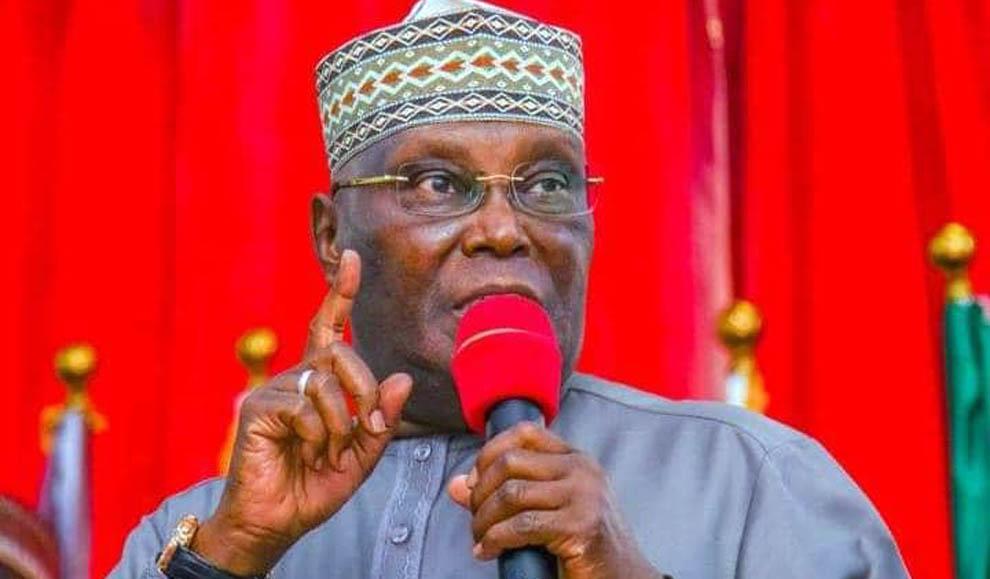
Atiku says he’s not sure about contesting 2027 presidential election
Former Vice President Atiku Abubakar has said that he does not know if he will contest the presidency in 2027.
Atiku made the remark in a yet-to-be-aired interview for a television show, Untold Stories, with Adesuwa Giwa-Osagie, scheduled for broadcast today but exclusively obtained by Daily Trust.
The former presidential candidate of the Peoples Democratic Party (PDP) recently announced the formation of a coalition of opposition leaders to wrest power from President Bola Ahmed Tinubu in 2027.
However, there has been widespread speculation about who will lead the coalition and emerge as its presidential candidate, with former Labour Party presidential candidate, Peter Obi and former Kaduna State governor, Nasir El-Rufai, being considered among its key figures.
When asked if he would be running for the presidency in 2027, Atiku said: “I don’t know because there has to be, first of all, a viable platform, more than any other time in the political history of this country, particularly since the return of democracy.”
READ ALSO:
- Terrorists kill soldiers in attack on Borno military base
- Ex-NSA Dasuki’s N33.2bn fraud case begins afresh 10 years after
- Senate committee throws out Natasha’s petition
Atiku, who has run for the presidency a record six times, did not rule out the possibility of contesting again in 2027.
“I have not seen Nigeria in dire need of, you know, an experienced and credible leadership than this time.
“We had a similar, you know, what would I say, merger in 2014. About four of us or is it three? We all ran for president and one of us emerged, and we all supported the one who emerged, and he won,” he said.
He agreed with former President Olusegun Obasanjo’s assertion that Nigeria’s democracy is deteriorating, saying the situation is “very dire.”
“No doubt about that,” he said.
Atiku also expressed his disappointment with the country’s political leadership.
“The next generation after me, many of them had been governors, had been senators. Instead of me to see an improvement in the level of governance at the state level and so on and so forth, I don’t see it. So I feel a little bit distressed.”
Atiku also questioned the credibility of the current legislative leadership, especially as it relates to the National Assembly’s ratification of the state of emergency in Rivers State
“I am not surprised,” he said, alleging that they are corrupt.
Atiku says he’s not sure about contesting 2027 presidential election
Politics
Africa’s democracy is govt by small for small number of people – Obasanjo
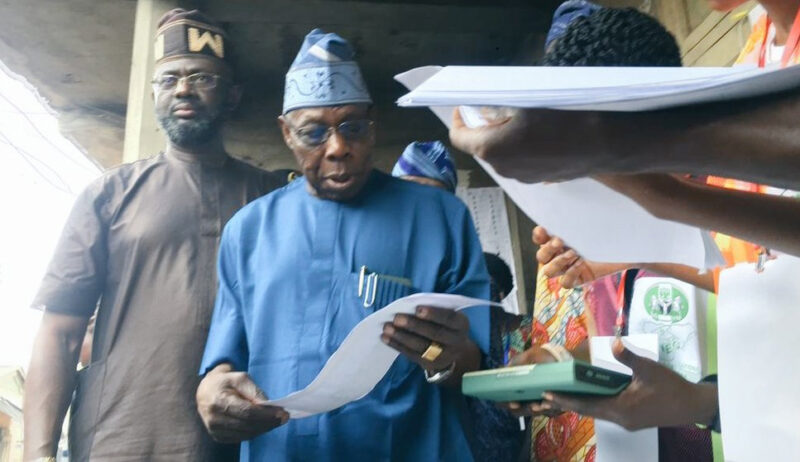
Africa’s democracy is govt by small for small number of people – Obasanjo
Former President Olusegun Obasanjo has advanced reasons for what he called abysmal failure of democracy in Africa.
According to him, African presidents work with a clique and wield enormous powers with little or no resistance from perpetuating illegalities and abuse of office.
The ex-President said the democracy being practised in Africa does not aligned with the people’s values, culture, and way of life.
Obasanjo said spoke on Monday at a colloquium in Abuja to mark the 60th birthday of Emeka Ihedioha, a former governor of Imo State.
The former Nigerian leader, who chaired the event, referencing Abraham Lincoln’s definition of democracy as “government of the people, by the people, for the people,” said the system should work for all citizens rather than a privileged few.
He however wondered if African countries are practising true democracy or only adopting Western Liberal democracy.
He said, “If you are talking about democracy failing in Africa, democracy in Africa has failed. And why has it failed?
“Because in context and in content, it is not Africa. It does not have any aspect of our culture, our way of life, what we stand for, what we believe.
“Today, we have democracy, which is the government of a small number of people, by a small number of people over a large number of people who are deprived of what they need to have in life. That is not democracy that will endure.
“It is ‘I am because I can grab.’ What sort of democracy brings you, and you grab everything and then illegally, corruptly, and you say go to court? When you know that even in the court, you cannot get justice.
“It’s not that democracy is failing, democracy is dying and if we are going to make democracy not to die, we have to look at democracy in the context and in the content of Africa. I hope that we will get to that stage so that democracy which will deliver will be the democracy that we will have in Africa.”
Obasanjo was Nigeria’s military ruler from 1976 to 1979 and democratically elected president from 1999 to 2007.
Politics
Atiku, Obi, El-Rufai’s coalition can’t unseat Tinubu – Shekarau
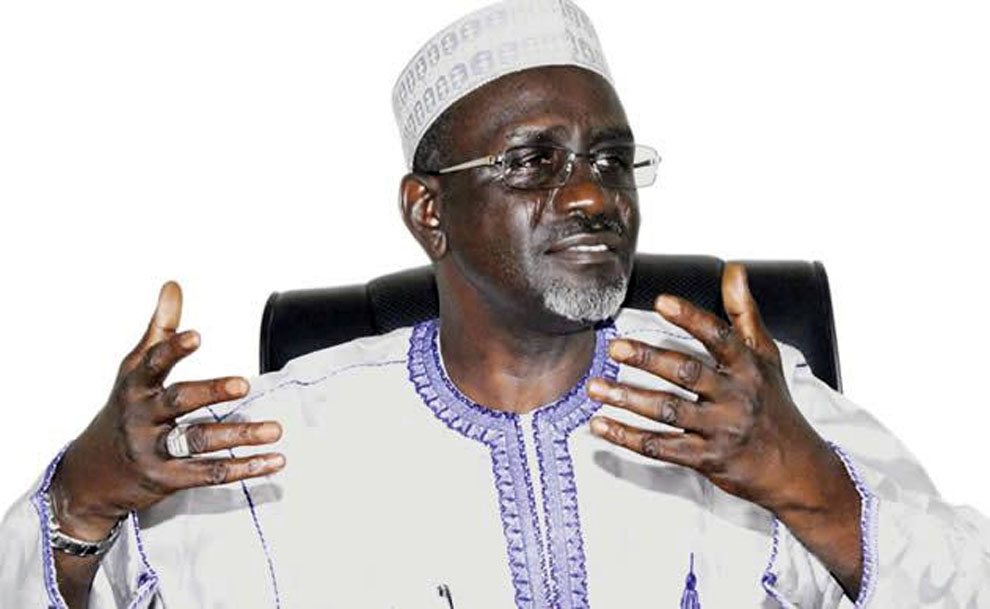
Atiku, Obi, El-Rufai’s coalition can’t unseat Tinubu – Shekarau
Former Kano State Governor, Ibrahim Shekarau, has cast doubt on the ability of a newly formed opposition coalition to unseat President Bola Tinubu and the ruling All Progressives Congress (APC) in the 2027 elections.
Shekarau described the alliance, which includes former Vice President Atiku Abubakar, Labour Party’s 2023 presidential candidate Peter Obi, and ex-Kaduna State Governor Nasir El-Rufai, as a gathering of individuals with personal political ambitions rather than a structured and unified opposition front.
His remarks came just two days after the coalition’s formation was announced, with the stated goal of challenging Tinubu’s administration.
In a statement by his spokesperson, Dr. Sule Yau, Shekarau remarked, “This is just a gathering of certain individuals with political ambitions; none of them has officially consulted their party leadership.”
READ ALSO:
- Six students die of meningitis in Kebbi varsity
- Asake reconciles with ailing father, moves him to specialist hospital
- Soyinka Kicks against State of Emergency in Rivers
He further argued that a coalition featuring prominent figures does not necessarily equate to an effective political alliance.
“The coalition of opposition figures is a good development, as seen in their recent meeting under what they call an opposition alliance. However, none of the key figures involved represents their party leadership,” Shekarau stated.
Emphasizing the legal framework for political mergers, he pointed out that only registered parties could formally unite, making the recent gathering an informal arrangement rather than an officially recognized coalition.
Atiku, Obi, El-Rufai’s coalition can’t unseat Tinubu – Shekarau
-
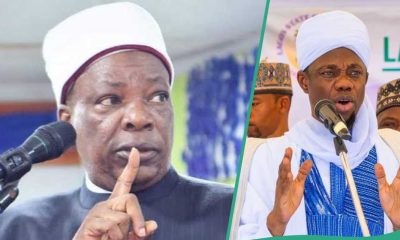
 metro2 days ago
metro2 days agoAttack on Mufty of Ilorin: Onikijipa Family Charges Stakeholders to Call Sheikh Habibullahi Al-Ilory to Order
-
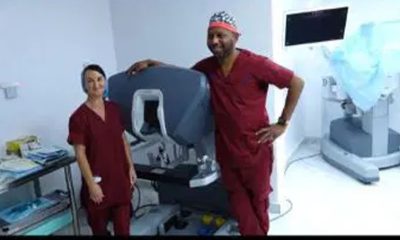
 Health3 days ago
Health3 days agoNigerian doctor pioneers W’Africa first robotic prostate cancer surgery
-

 metro14 hours ago
metro14 hours agoRivers administrator Ibas fires Fubara’s political appointees
-
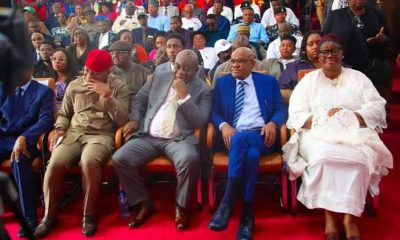
 metro3 days ago
metro3 days agoFubara: Supreme Court reacts to photo of Justice Agim with Wike
-
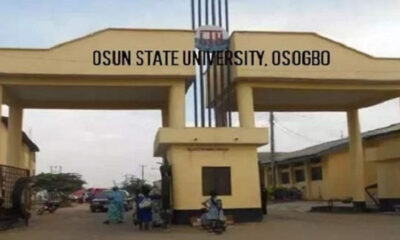
 metro3 days ago
metro3 days agoUNIOSUN mourns as 5 students die in auto crash
-

 metro13 hours ago
metro13 hours agoJUST-IN: Ex-Oyo gov Ajimobi’s first child Bisola dies At 42
-

 metro1 day ago
metro1 day agoHow ritualists, native doctor drugged, murdered underage sisters in PH – Police
-

 International2 days ago
International2 days agoCanada removes bonus ranking points for job offers in Express Entry system

